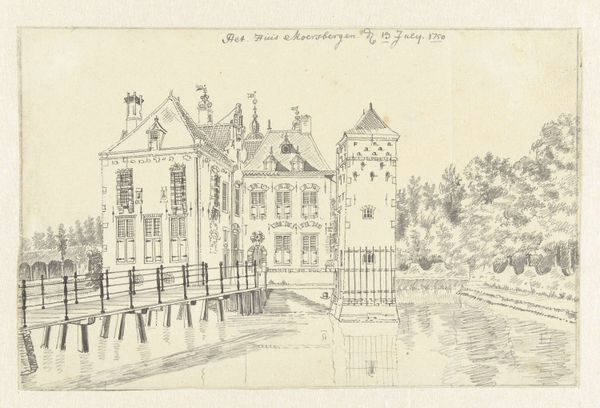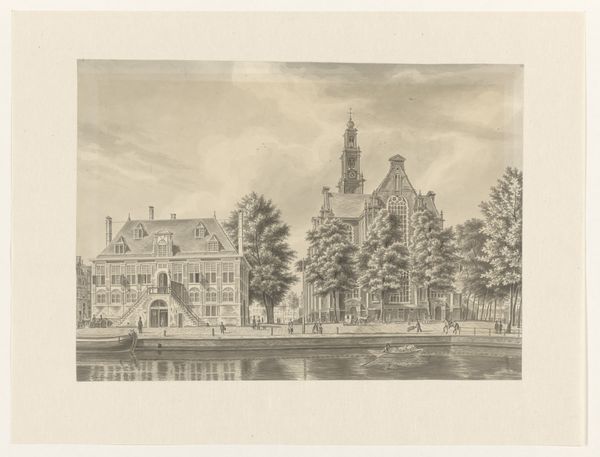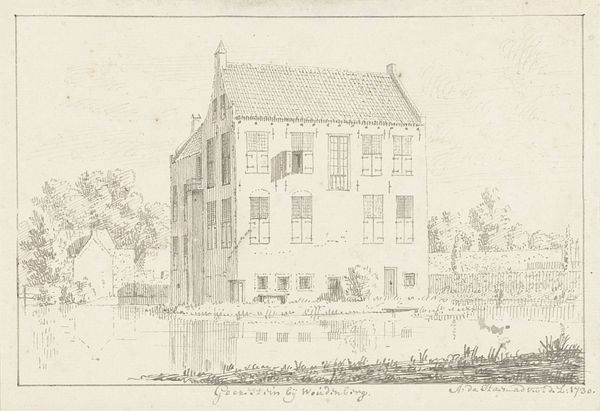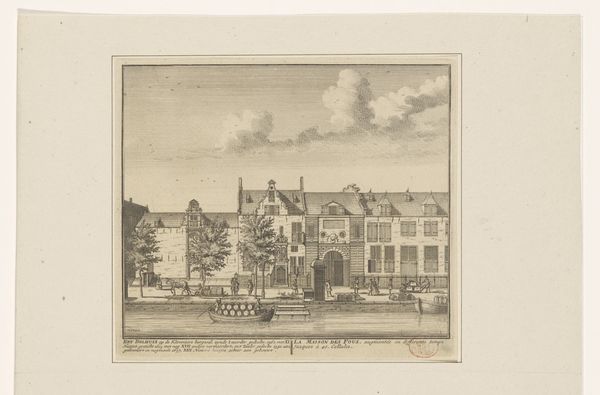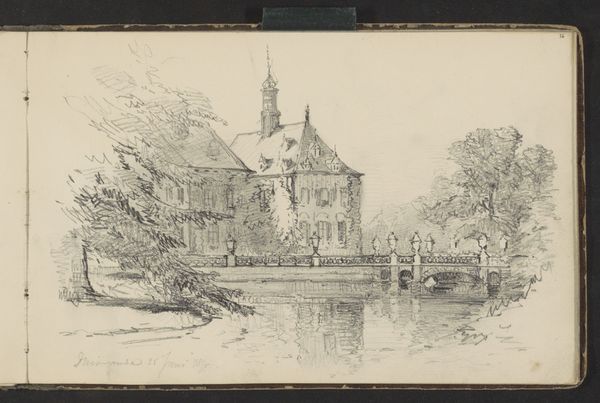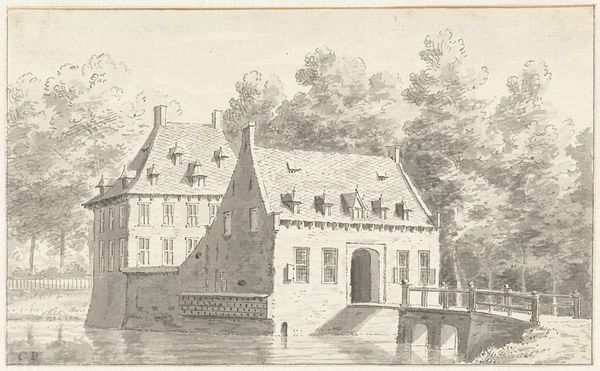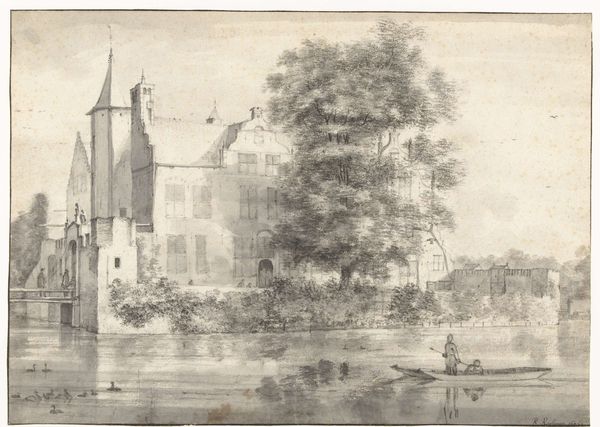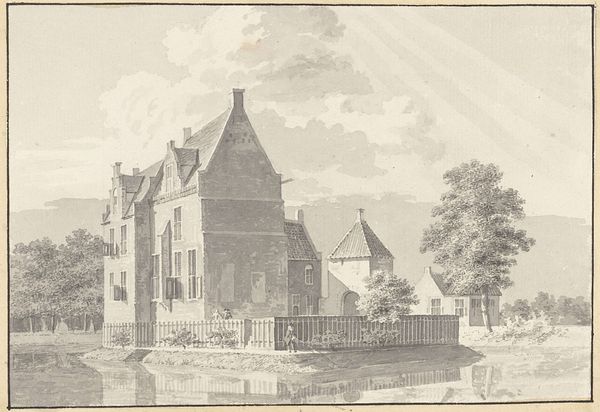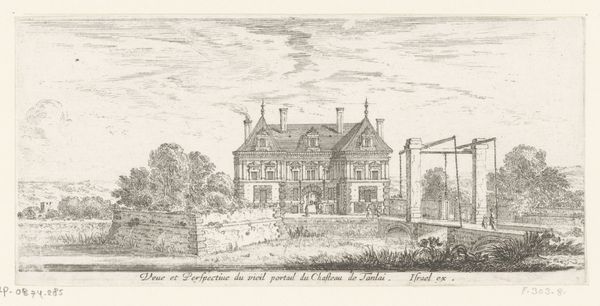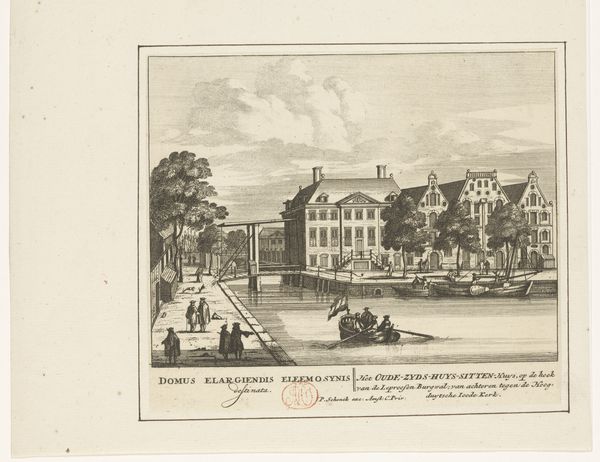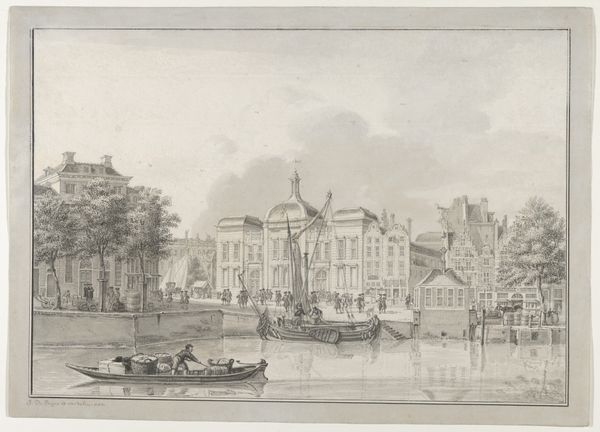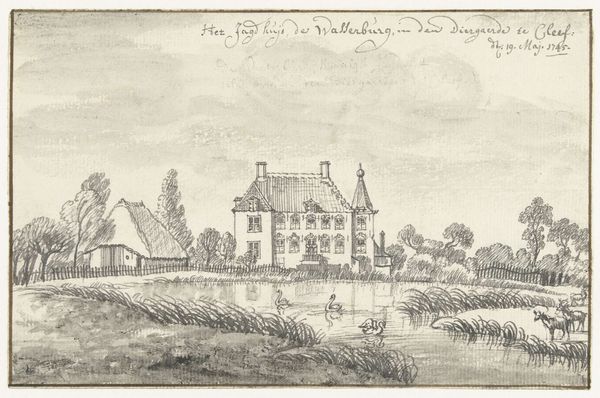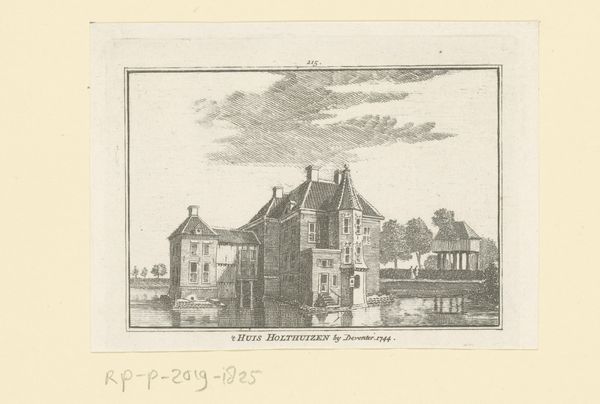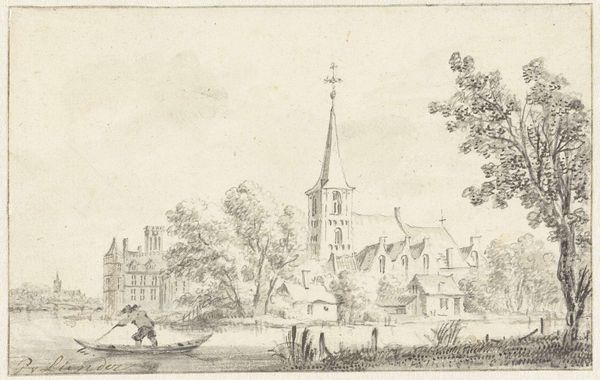
drawing, print, paper, ink, architecture
#
architectural sketch
#
drawing
#
aged paper
#
baroque
#
mechanical pen drawing
# print
#
pen sketch
#
old engraving style
#
landscape
#
paper
#
personal sketchbook
#
ink
#
sketchwork
#
pen-ink sketch
#
pen work
#
cityscape
#
storyboard and sketchbook work
#
architecture
#
realism
Dimensions: height 165 mm, width 274 mm
Copyright: Rijks Museum: Open Domain
Jan de Beijer created ‘Het Huis te Doorn’ in 1750 using pen and brown ink. Notice how the detailed, linear quality of the drawing invites us to examine the architectural structure meticulously. De Beijer's strategic use of hatching and cross-hatching creates subtle tonal variations that define the forms and textures of the building and surrounding landscape. The formal geometric lines and precise rendering contrast with the organic, flowing lines of the trees and water, creating a dynamic visual tension. This tension highlights the intersection of human-made structures with the natural world. The composition invites a semiotic interpretation, where the castle could symbolize power, stability, and order, while the natural elements suggest the fluidity of change and the passage of time. The drawing destabilizes a fixed sense of place by presenting it as a scene of both permanence and transience. Through its formal structure, the drawing becomes a site for ongoing interpretations about the relationship between architecture and nature.
Comments
No comments
Be the first to comment and join the conversation on the ultimate creative platform.
